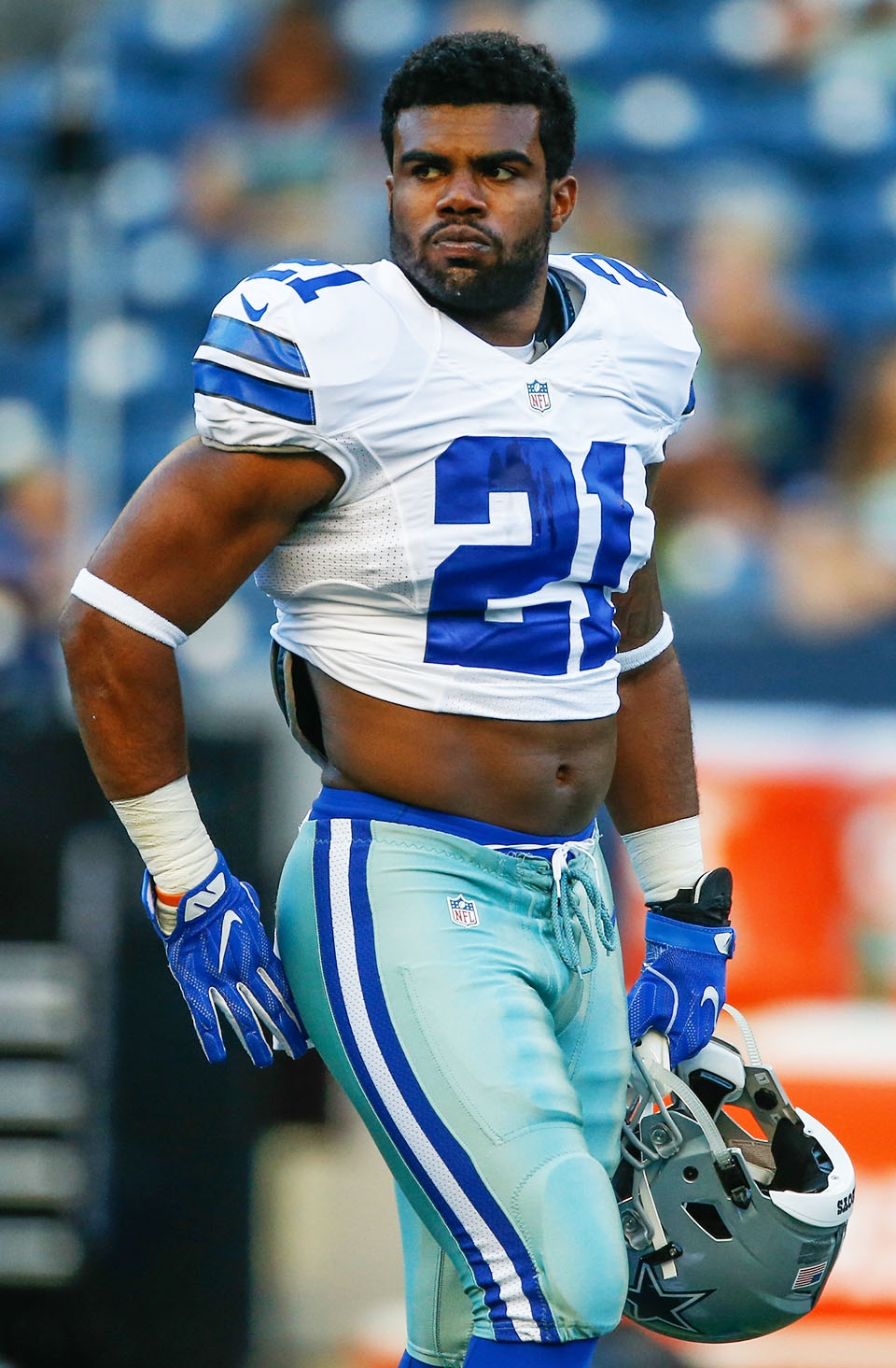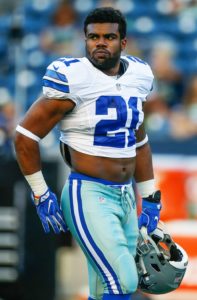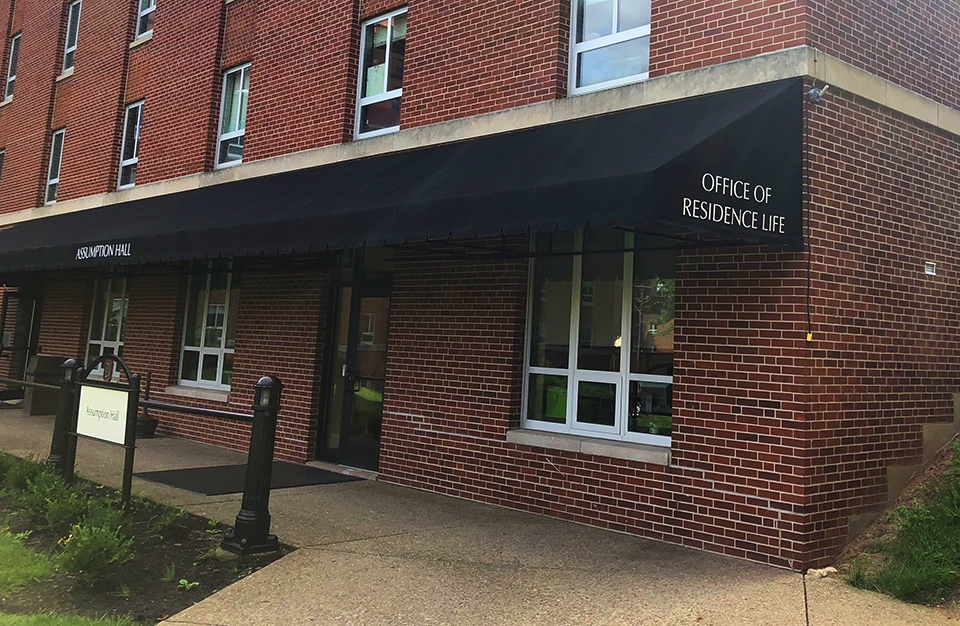

Bryanna McDermott | Asst. Photo Editor
Running back Ezekiel Elliott, 22, took to the field for the Dallas Cowboys on Sunday night, just days after a federal court judge in Texas blocked his six-game suspension for an alleged domestic violence claim due to an unfair trial by the National Football League. The NFL has never been sufficient, accurate or even consistent with legal affairs, and this year-long case has been no different.
Elliott’s ex-girlfriend filed domestic abuse charges against him in July 2016, but they were dropped by the prosecution due to a lack of evidence. Police found that the accuser’s stories didn’t align with witnesses’, she had texted a female friend asking her to lie to police, and the bruises she claimed were from Elliott had come from an altercation with another woman at a bar.
There was also no proof that she lived with Elliott, which is a requirement to file domestic violence charges.
However, the NFL still decided to suspend Elliott.
The league claimed that after collecting a variety of evidence, including texts and metadata, that Elliott was violent with his ex-girlfriend on three different occasions during the week of the original incident.
Elliott appealed the suspension and was denied, leading the NFL Players’ Association to file a lawsuit against the league on behalf of Elliott for an unfair trial. It claimed that the league did not make the alleged victim available to testify under oath during the appeal and that NFL commissioner Roger Goodell didn’t meet with Elliott or his ex-girlfriend.
On Sept. 8, Judge Amos Mazzant ruled in favor of Elliott’s temporary restraining order against the suspension, blocking the suspension and allowing him to play until his lawsuit against the NFL concludes.
While Elliott may get to play the entirety of this season, he will likely have to serve his punishment in the future.
The NFL’s personal conduct policy states that “persons who fail to live up to this standard of conduct are guilty of conduct detrimental and subject to discipline, even where the conduct itself does not result in conviction of crime.”
This policy, along with section 46 of the collective bargaining agreement between the NFL and the NFLPA, gives the commissioner complete jurisdiction over punishments. This means that if Goodell sees that Elliott damaged the reputation of the league in any way, Elliott must sit out of those six games — just as Tom Brady was eventually benched for four games after the Deflategate saga.
Amidst all of the controversy, I can still see the league’s good intentions in the decision to suspend Elliott, even after the charges were dropped. The NFL has a long, taxing history with domestic abuse, which has led to scrutiny of how the league handles such situations.
Ray Rice received just a two-game suspension in 2014 after knocking out his then-fiancee in an elevator. It was only after TMZ released the graphic video of the incident that the league suspended him indefinitely, and the Baltimore Ravens later cut him from the team.
Then, in 2016, Josh Brown sat out one game as punishment for a history of violence against his ex-wife. On Sept. 8, six more games were added to his sentence after the investigation was reopened and new information was found.
Perhaps this was the NFL’s way of sending a clear message to its players: Domestic violence will not be tolerated, no exceptions.
Nevertheless, Elliott still deserves a fair trial. The league may have had good intentions, but it must go about it in a legal way.
If the league was confident that its investigation was sound and capable of upholding Elliott’s suspension, it would have allowed the NFLPA access to all available documents and witnesses during the initial trial.
On the other hand, the league still has the right to suspend Elliott under the rules of the CBA.
Whether or not he is guilty, Elliott did break the NFL’s personal conduct policy, which clearly states that “conduct detrimental to the integrity of and public confidence in the National Football League” must be avoided.
By putting himself in the position to even be accused of domestic violence, Elliott brought bad publicity upon the NFL, a league already scarred by the actions of its players and its own inconsistent decisions while handling similar instances in the past. No matter the outcome of the case legally, the fact that it involves Elliott is damaging enough for the league.
It’s obvious that the domestic violence problem ravaging the NFL is a sickening dilemma worth deliberation. However, the answer in ending the abuse isn’t unfair trials or policies that allow the commissioner to be both judge and jury.
The league must do a better job at combating this issue, but the players need to step up as well. In nearly any other profession, a person may face serious ramifications — including a potential termination — for certain actions that star professional athletes are minimally punished for.
Just because these men are playing a game doesn’t mean that the league is a playground.
It’s a business, and these men need to begin to act like it.




